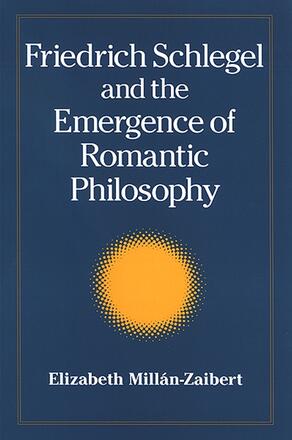
Friedrich Schlegel and the Emergence of Romantic Philosophy
Alternative formats available from:
The origins of early German Romanticism and the philosophical contributions of the movement’s most important philosopher.
Description
This book addresses the philosophical reception of early German Romanticism and offers the first in-depth study in English of the movement's most important philosopher, Friedrich Schlegel, presenting his philosophy against the background of the controversies that shaped its emergence. Elizabeth Millán-Zaibert begins by distinguishing early German Romanticism from classical German Idealism, under which it has all too often been subsumed, and then explores Schlegel's romantic philosophy (and his rejection of first principles) by showing how he responded to three central figures of the post-Kantian period in Germany—Jacobi, Reinhold, and Fichte—as well as to Kant himself. She concludes with a comprehensive critique of the aesthetic and epistemological consequences of Schlegel's thought, with special attention paid to his use of irony.
Elizabeth Millán-Zaibert is Assistant Professor of Philosophy at DePaul University. She is the coeditor (with Arleen Salles) of The Role of History in Latin American Philosophy: Contemporary Perspectives and the translator of Manfred Frank's The Philosophical Foundations of Early German Romanticism, both also published by SUNY Press.
Reviews
"…this book is a useful adjunct to the work of [Frederick] Beiser, [Andrew] Bowie and [Manfred] Frank. " — Philosophy in Review
"…Millán-Zaibert makes a significant and positive contribution to the growing list of contemporary scholarship in the area of early German romantic philosophy … [she] does an excellent job of engaging Schlegel's thought in the context of Kant, Spinoza, Fichte, Hegel, and other heavyweight philosophers. " — Kinesis
"…[an] important book. " — CHOICE
"Millán-Zaibert makes a convincing argument that Schlegel has a very sensible and relevant philosophical position, and that it has been generally misunderstood and underappreciated. I believe everyone working in the field will be indebted to this volume and will work with it regularly. " — Karl Ameriks, coeditor of The Modern Subject: Conceptions of the Self in Classical German Philosophy